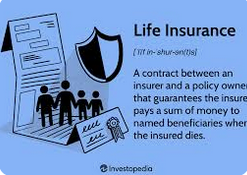Introduction
The gig economy is booming, with more people than ever embracing freelance work for its flexibility and independence. However, this shift brings unique challenges, particularly regarding insurance coverage. Unlike traditional employees, freelancers often lack access to employer-provided benefits, making it crucial for them to secure their own insurance solutions. This blog explores the various insurance options available to gig workers and how they can protect themselves and their livelihoods.
Brief Overview of Insurance and the Gig Economy: Coverage for Freelancers
Insurance for freelancers in the gig economy is designed to address the specific risks and needs of independent contractors. This includes health insurance, liability insurance, disability insurance, and more. As gig workers often juggle multiple clients and projects, having the right insurance coverage ensures they are protected from unexpected events that could impact their health, income, or professional reputation.
How Insurance and the Gig Economy: Coverage for Freelancers Can Help You
Securing appropriate insurance coverage is vital for freelancers to safeguard their financial stability and peace of mind. Here are some ways insurance can help:
Health Insurance
Health insurance is critical for freelancers, providing access to medical care and protection against high medical costs. Freelancers can explore options like marketplace plans, association health plans, or short-term health insurance to find suitable coverage.
Liability Insurance
Professional liability insurance, also known as errors and omissions insurance, protects freelancers from claims of negligence or inadequate work. This is particularly important for freelancers in fields like consulting, design, or writing, where client dissatisfaction could lead to legal action.
Disability Insurance
Disability insurance provides income replacement if a freelancer is unable to work due to illness or injury. This coverage is essential for maintaining financial stability during periods of incapacity.
Create a Tutorial on How Choosing the Best Insurance and the Gig Economy: Coverage for Freelancers
Choosing the best insurance plan for your freelance work involves careful consideration and research. Here’s a step-by-step tutorial to guide you:
Step 1: Assess Your Insurance Needs
Begin by evaluating your specific needs. Consider your health status, the nature of your freelance work, potential risks, and your financial situation. This assessment will help you determine the types and levels of coverage required.
Step 2: Research Insurance Providers
Look into various insurance providers that offer plans tailored for freelancers. Compare their offerings, premiums, coverage limits, and customer reviews. Consider both traditional insurance companies and newer, gig economy-focused insurers.
Step 3: Explore Health Insurance Options
Freelancers have several health insurance options, including marketplace plans, association health plans, and short-term health insurance. Evaluate these options based on coverage benefits, costs, and network of healthcare providers.
Step 4: Consider Liability and Other Professional Insurance
Determine if you need additional insurance such as professional liability, general liability, or cyber liability insurance. These policies can protect you from lawsuits and claims related to your freelance work.
Step 5: Evaluate Disability and Income Protection
Disability insurance is crucial for freelancers who rely on their ability to work for their income. Compare short-term and long-term disability insurance options to find a policy that offers adequate income replacement.
How Much Does Insurance and the Gig Economy: Coverage for Freelancers Charge?
The cost of insurance for freelancers varies widely based on factors such as age, health status, type of coverage, and location. Health insurance premiums can range from a few hundred to several thousand dollars per year. Professional liability insurance typically costs between $500 and $2,000 annually, depending on the level of risk. Disability insurance premiums are usually a percentage of your annual income, often around 1-3%. While these costs can add up, investing in the right insurance coverage is essential for financial protection and peace of mind.
Create Comparison About Insurance and the Gig Economy: Coverage for Freelancers
Here’s a comparison of different insurance options available for freelancers in the gig economy:
Marketplace Health Insurance vs. Association Health Plans
Marketplace Health Insurance: Offers a variety of plans through state or federal exchanges. These plans are often comprehensive and may be eligible for subsidies based on income. However, premiums can be high without subsidies.
Association Health Plans: Allow freelancers to band together to purchase health insurance as a group. These plans can offer lower premiums and broader coverage options, but availability and regulations vary by state.
Traditional Insurance Providers vs. Gig Economy-Focused Insurers
Traditional Insurance Providers: Established companies offering a wide range of insurance products. They provide robust coverage options and customer service but may not always cater specifically to freelancers.
Gig Economy-Focused Insurers: Newer insurers targeting the gig economy with tailored products and flexible plans. They often offer innovative solutions and understand the unique needs of freelancers, but may have limited track records.
Write Benefits of Insurance and the Gig Economy: Coverage for Freelancers
Insurance for freelancers in the gig economy offers numerous benefits:
Financial Security
Insurance provides a safety net, protecting freelancers from high medical bills, liability claims, and loss of income due to disability.
Access to Quality Healthcare
Health insurance ensures freelancers can access necessary medical care, preventive services, and treatments without financial strain.
Professional Protection
Liability insurance shields freelancers from potential lawsuits and claims, safeguarding their professional reputation and financial assets.
Peace of Mind
Having adequate insurance coverage provides peace of mind, allowing freelancers to focus on their work and personal lives without constant worry about unforeseen events.
Create Conclusion About Insurance and the Gig Economy: Coverage for Freelancers
In the rapidly growing gig economy, securing appropriate insurance coverage is essential for freelancers. From health and liability insurance to disability coverage, these protections ensure that gig workers can navigate the uncertainties of freelance life with confidence. By carefully assessing their needs, researching options, and choosing the right policies, freelancers can safeguard their health, income, and professional reputation. As the gig economy continues to evolve, so too will the insurance solutions designed to meet the unique challenges and opportunities it presents.




Leave a Comment